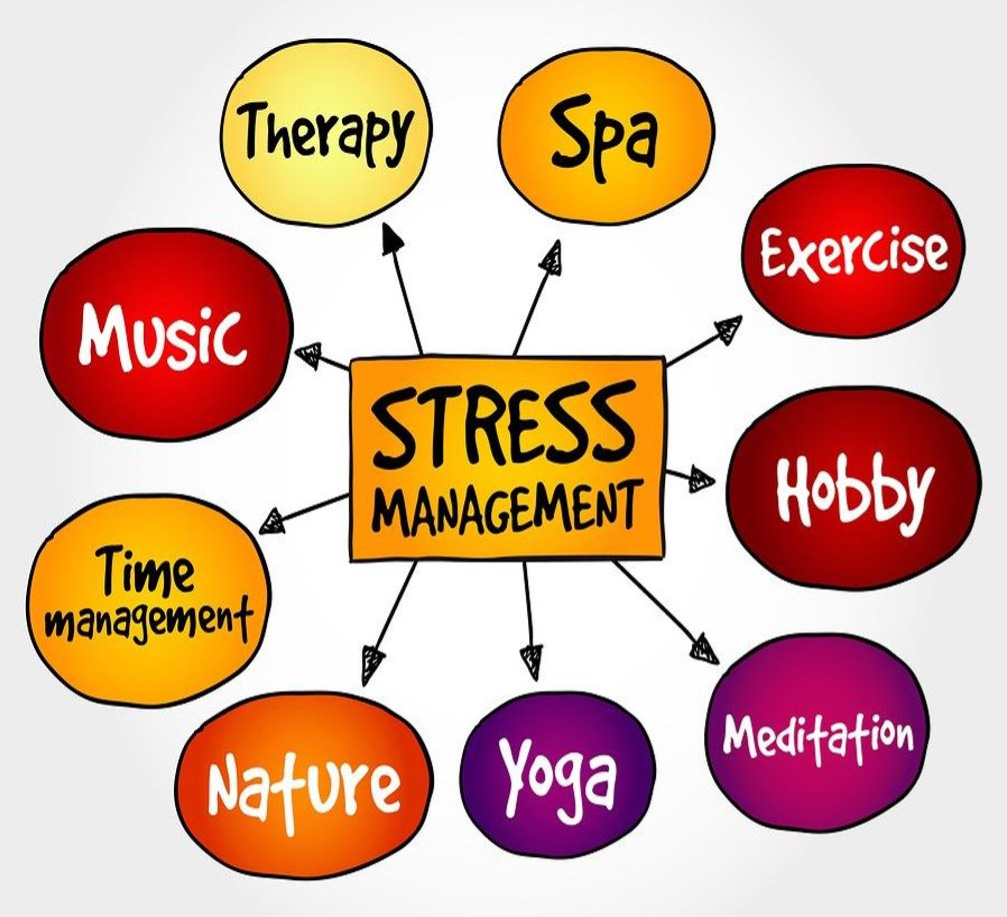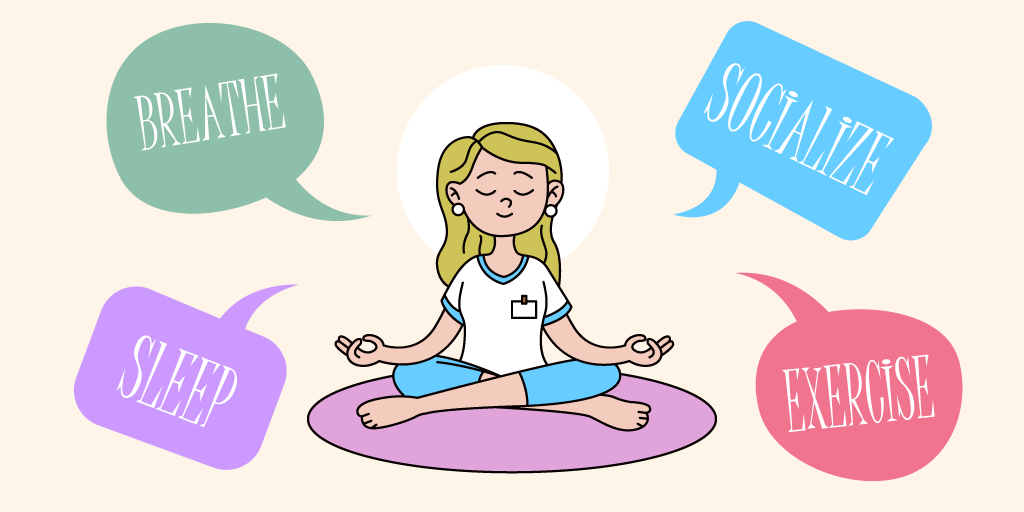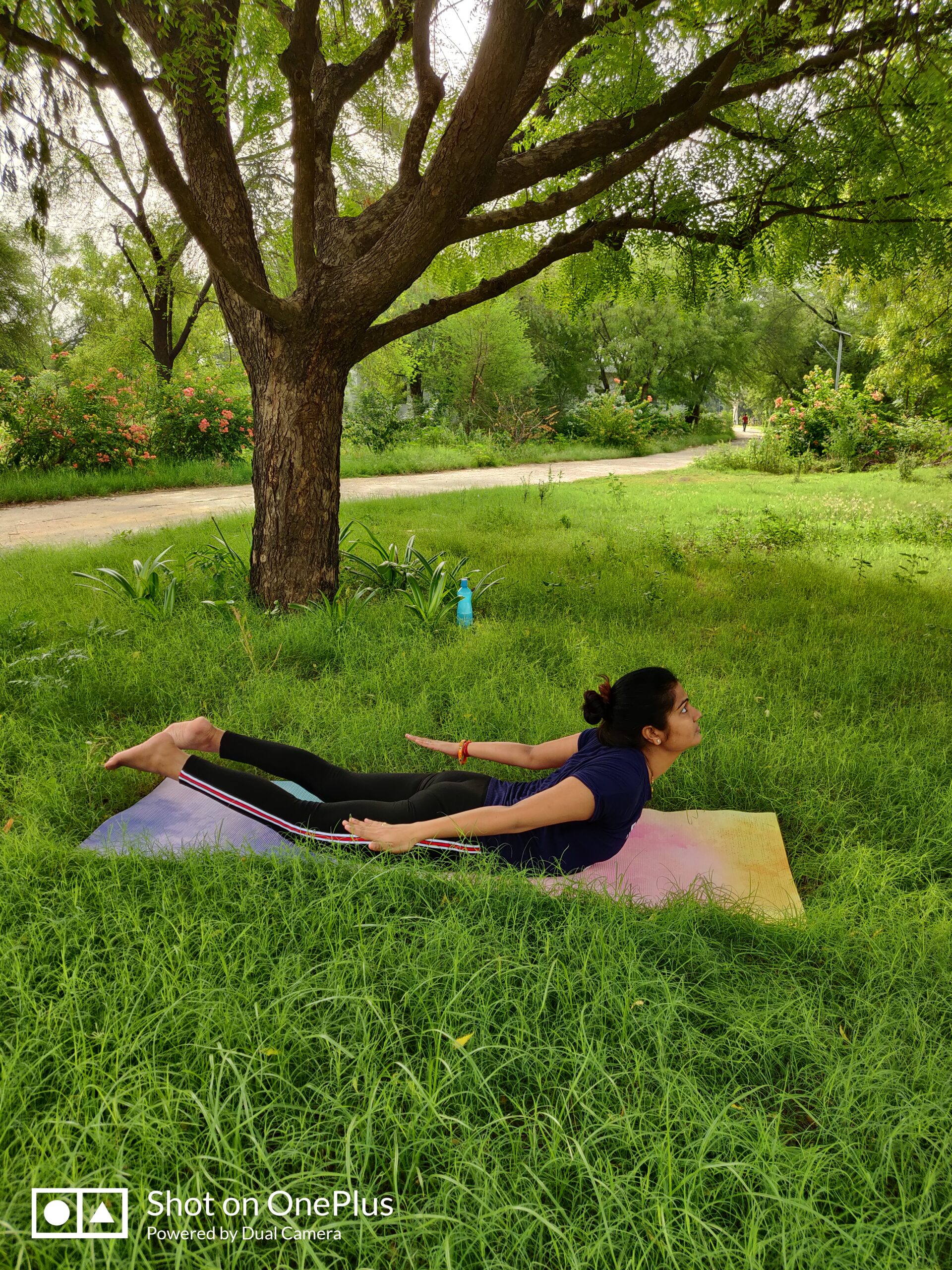
Stress is a normal reaction the body has when changes occur, resulting in physical, emotional and intellectual responses. Stress management training can help you deal with things in a healthier manner.
What is stress?
Stress is a normal human reaction that happens to everyone. In fact, the human body is designed to experience stress and react to it. When you experience changes or challenges (stressors), your body produces physical and mental responses. That’s stress.
Stress responses help your body adjust to new situations. Stress can be positive, keeping us alert, motivated and ready to avoid danger.
For example, if you have an important test coming up, a stress response might help your body work harder and stay awake longer. But stress becomes a problem when stressors continue without relief or periods of relaxation.
What happens to the body during stress?
The body’s autonomic nervous system controls your heart rate, breathing, vision changes and more. Its built-in stress response, the “fight-or-flight response,” helps the body face stressful situations.When a person has long-term (chronic) stress, continued activation of the stress response causes wear and tear on the body. Physical, emotional and behavioral symptoms develop.
Signs and Symptoms
The body’s autonomic nervous system controls your heart rate, breathing, vision changes and more. Its built-in stress response, the “fight-or-flight response,” helps the body face stressful situations.When a person has long-term (chronic) stress, continued activation of the stress response causes wear and tear on the body.
Physical, emotional and behavioral symptoms develop.
Cognitive symptoms:
- Memory problems
- Inability to concentrate
- Poor judgment
- Seeing only the negative
- Anxious or racing thoughts
- Constant worrying
Emotional symptoms:
- Depression or general unhappiness
- Anxiety and agitation
- Moodiness, irritability, or anger
- Feeling overwhelmed
- Loneliness and isolation
- Other mental or emotional health problems.
Physical symptoms:.
Aches and pains.Diarrhea or constipation.Nausea, dizziness.Chest pain, rapid heart rate.Loss of sex drive.Frequent colds or flu.
Behavioral symptoms:.
Eating more or less.Sleeping too much or too little.Withdrawing from others.Procrastinating or neglecting responsibilities.Using alcohol, cigarettes, or drugs to relax.Nervous habits (e.g. nail biting, pacing) If the stress is long-lasting, you may notice your sleep and memory are affected, your eating habits change, or you feel less inclined to exercise.
How is stress diagnosed?
Stress is subjective — not measurable with tests. Only the person experiencing it can determine whether is it present and how severe it feels.
A healthcare provider may use questionnaires to understand your stress and how it affects your life.If you have chronic stress, your healthcare provider can evaluate symptoms that result from stress. For example, high blood pressure can be diagnosed and treated.
CAUSES
Common external causes of stress include:
- Major life changes
- Work or school
- Relationship difficulties
- Financial problems
- Being too busy
- Children and family
Common internal causes of stress include:.
- Pessimism.
- Inability to accept uncertainty
- Rigid thinking, lack of flexibility
- Negative self-talk
- Unrealistic expectations / perfectionism
- All-or-nothing attitude
MANAGEMENT

Stress is part of being human, and it can help motivate you to get things done. Even high stress from serious illness, job loss, a death in the family, or a painful life event can be a natural part of life. You may feel down or anxious, and that’s normal too for a while.Talk to your doctor if you feel down or anxious for more than several weeks or if it starts to interfere with your home or work life. Therapy, medication, and other strategies can help.
Exercise:
To start with, physical activity can help improve your sleep. And better sleep means better stress management. Doctors don’t yet know exactly why, but people who exercise more tend to get better deep “slow wave” sleep that helps renew the brain and body. Just take care not to exercise too close to bedtime, which disrupts sleep for some people.
If you don’t have the time for a formal exercise program, you can still find ways to move throughout your day. Try these tips:
- Bike instead of driving to the store.
- Use the stairs instead of the elevator.
- Park as far as you can from the door.
- Hand-wash your car.
- Clean your house.
- Walk on your lunch break.
Diet:
The benefits of eating health foods extend beyond your waistline to your mental health. A healthy diet can lessen the effects of stress, build up your immune system, level your mood, and lower your blood pressure.
To stay healthy and on an even keel, look for complex carbohydrates, lean proteins, and fatty acids found in fish, meat, eggs, and nuts.
Antioxidants help too. They protect your cells against damage that chronic stress can cause. You can find them in a huge variety of foods like beans, fruits, berries, vegetables, and spices such as ginger.Stick to a healthy diet with a few simple tips. Carry healthy snacks with you when you leave the house.
Stay away from processed foods, and try not to eat mindlessly.

Sleep:
A common side effect of stress is that you may struggle to fall asleep. If this happens three times a week for at least 3 months, you may have insomnia, an inability to fall and stay asleep. Lack of sleep can also add to your stress level and cause a cycle of stress and sleeplessness. Better sleep habits can help.
This includes both your daily routine and the way you set up your bedroom. Habits that may help include:
- Exercise regularly.
- Get out in the sunlight.
- Drink less alcohol and caffeine close to bedtime.
- Set a sleep schedule.
- Don’t look at your electronics 30-60 minutes before bed.
- Try meditation or other forms of relaxation at bedtime.
Relaxation Techniques:
a)Yoga:

This is a form of exercise, but it can also be a meditation. There are many types of yoga. The ones that focus on slow movement, stretching, and deep breathing are best for lowering your anxiety and stress.
b) Meditation:
It has been around for over 5,000 years for a reason. Meditation works well for many people and has many benefits. It can lower stress, anxiety, and chronic pain as well as improve sleep, energy levels, and mood. To meditate, you will need to:
- Find a quiet place.
- Get comfortable (sitting or lying down).
- Focus your attention on a word, phrase, object, or even your breath.
- Let your thoughts come and go and do not judge them.
Deep Breathing: When you practice deep breathing, you turn on your body’s natural ability to relax. This creates a state of deep rest that can change how your body responds to stress. It sends more oxygen to your brain and calms the part of your nervous system that handles your ability to relax.
Abdominal Breathing: Get comfortable, close your eyes, and place one hand on your stomach and the other on your chest. Take a deep breath in through your nose. You should feel your belly rise more than your chest. Now, exhale through your nose and pay close attention to how your body relaxes. Repeat again .




